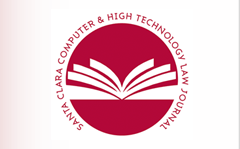Abstract
Active metabolite patents have been instrumental for brandname pharmaceutical companies to maintain their exclusivity even after the drug patents expire. This strategy obstructs market entry of generic medicine and reduces affordable drugs. The authors review jurisprudence from the United States, Europe, India, and Taiwan in search for practical solutions to confront this problem. Given the unique pharmacological value that active metabolites may possess, patent protection for those purified or synthesized in vitro should be preserved, but for those produced by metabolism should be declined. Except India, most countries under investigation comport with this dichotomy. Their jurisprudence may be subsumed into three possible solutions. The United States and the United Kingdom adopt the inherent anticipation doctrine; yet depriving artisan recognition of novelty analysis makes this doctrine highly controversial. The product of nature doctrine gravely suffers from incoherence and uncertainty in judging patentability. The non-practice theory, as articulated by Taiwan’s Intellectual Property (IP) Court, avoids these shortcomings. The unambiguity and sound rationale further support this theory to be the preferable solution among the three.
Recommended Citation
Richard Li-dar Wang and Pei-Chen Huang,
Patent Protection of Pharmacologically Active Metabolites: Theoretical and Technological Analysis on the Jurisprudence of Four Regions,
29 Santa Clara High Tech. L.J. 489
(2013).
Available at: https://digitalcommons.law.scu.edu/chtlj/vol29/iss3/2

